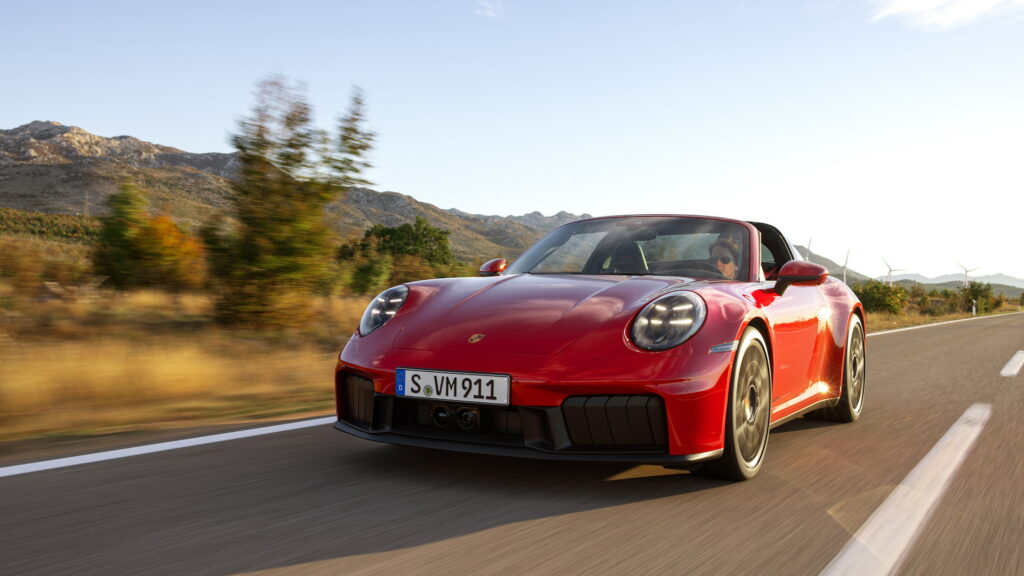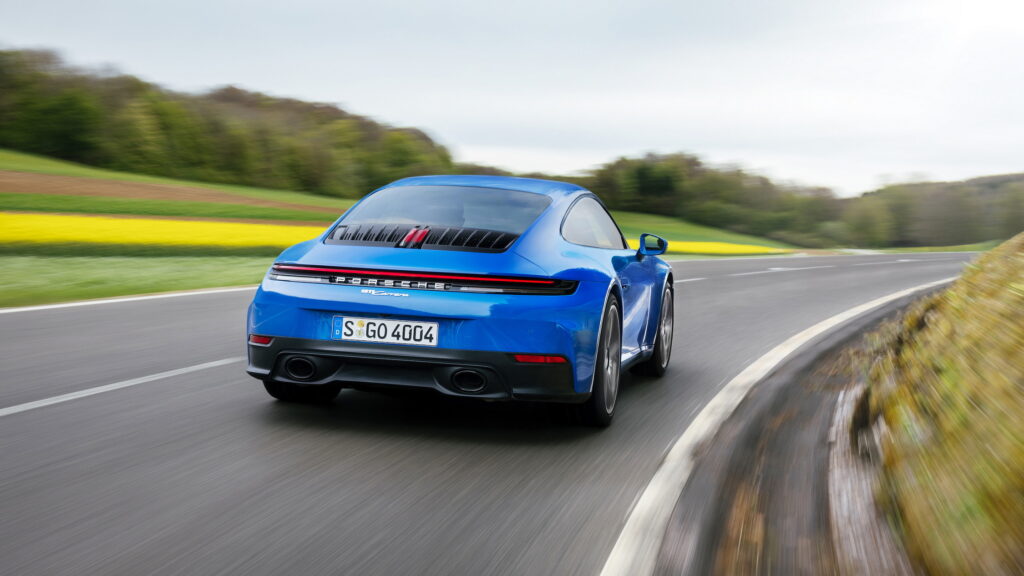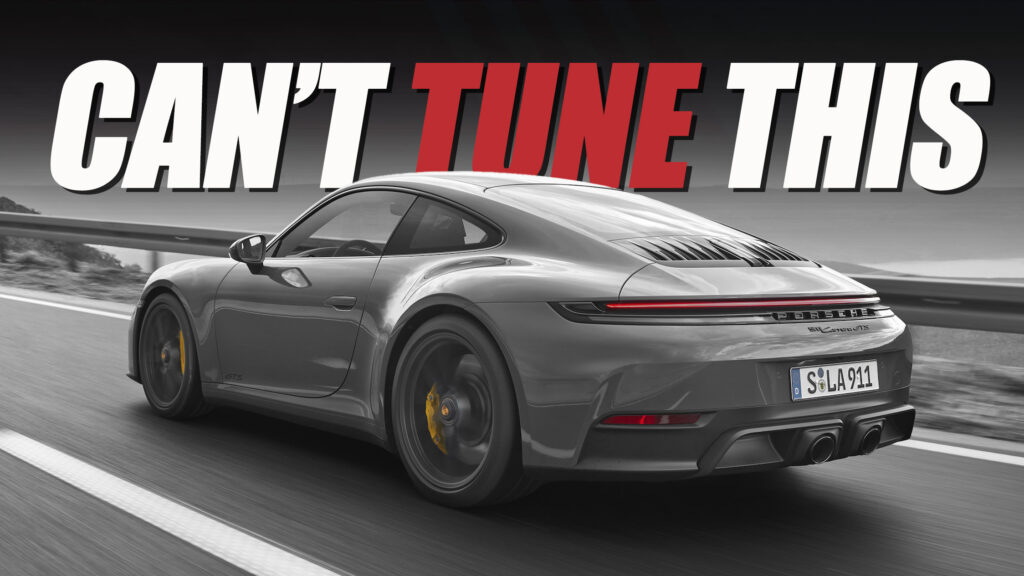- Porsche engineer says tuners will not be able to tinker with the hybrid powertrain of the 911 GTS.
- The T-Hybrid system utilizes a single electric turbocharger without a wastegate.
- In stock form, the 3.6-liter flat-six hybrid unit produces a healthy 534 horsepower.
Porsche recently unveiled the highly anticipated hybrid 911 with the facelifted GTS model. While tuners often find ways to boost power in various 911 models, a Porsche engineer clarified why this won’t be feasible for the T-Hybrid variant.
The 2025 Porsche 911 GTS boasts impressive stock performance, featuring a combined output of 534 hp (398 kW / 541 PS) and 449 lb-ft (609 Nm) of torque from its 3.6-liter flat-six engine. While it might seem feasible for a tuner to enhance the engine only beyond its factory 478 hp, leaving the hybrid system intact, Porsche has indicated that modifying the new 911 GTS is likely not possible.
More: Global Porsche Sales Slide 7% As Taycan Deliveries Halve
Top Gear Netherlands queried a Porsche engineer about tuning possibilities for the 911 GTS T-Hybrid, only to learn that this latest addition to the Porsche lineup cannot be modified. The primary reason cited is the inclusion of an electric turbocharger without a wastegate, preventing tuners from adjusting turbo pressure and thereby enhancing power output figures.
The facelifted Porsche 911 GTS replaced the twin turbochargers of its predecessor with a single electric turbocharger. Unlike traditional setups with a wastegate, excess exhaust gases power an electric motor acting as a generator for the battery pack. However, in Sport Plus mode, the turbo maintains maximum pressure even under braking, ensuring the driver has immediate power available exiting each corner.

With the electric turbo being an integral part of the hybrid system, it would be incredibly challenging for a tuner to modify it. While theoretically possible to develop and install a larger electric turbocharger, the substantial investment required likely makes it impractical for aftermarket businesses.
Despite the bad news for aftermarket companies, the Porsche engineer hinted that they may find alternative ways to enhance the performance of the first-ever electrified 911.
The only certain thing is that tuners need to step up their game if they want to survive in the era of electrification. After all, they already have to deal with increasingly complex HEV, PHEV, and BEV powertrains, sometimes forcing them to limit their input on visual and chassis upgrades.





